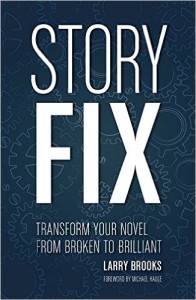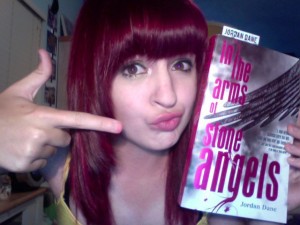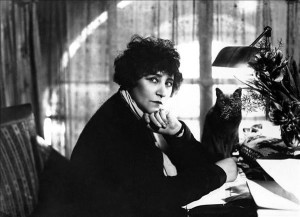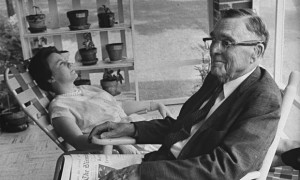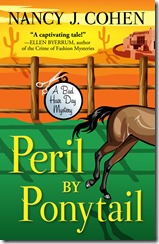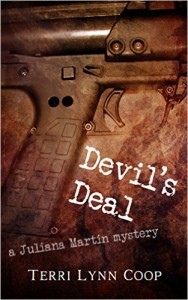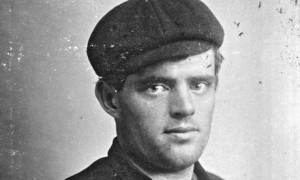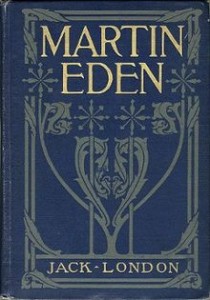I love the analogous notion of a writer’s tool box, chuck full of principles and proven practices and empowered narrative options. But the dark, rarely uttered truth of the matter is that we can get it all absolutely right, we can produce a by-the-book specimen of a mystery or thriller novel, and still not reach the goal of being published, pleasing reviewers or finding readers.
This, unfortunately, is why some writers drink to excess.
Sometimes this dark outcome can be explained by the idea itself not being robust enough, or competitive enough in a market full of stronger and fresher ideas. You can cook the hell out of a killer hamburger, but it may not make you the next Ray Kroc.
Brilliant execution of a too familiar or too vanilla premise – the bane of mysteries and thrillers and romances – may not be enough.
Or, the explanation may be the more obvious one: sub-standard execution chops. The tools were ignored, or at least not plugged into the right socket.
To get on the other side of this, to access the secret sauce that bestselling authors seem to deliver as if by second nature, we need to go deeper to discover and apply a set of more nuanced and powerful tools. Tools that aren’t taught at the 101 workshop but are definitely available once you crack the code on how to access that secret compartment of the author’s tool box, where opportunity awaits.
There a bunch of them, actually.
This weekend one of those principles assaulted me from a side door, which is usually the case. As a writing teacher/blogger it wasn’t new news – I would hope not – but its application within an unexpected venue knocked me over.
Secret weapon, indeed. Here’s what happened.
I am three months away from my new writing book’s release (Story Fix: Transform Your Novel From Broken to Brilliant, out in October from Writers Digest Books), and the author of the Foreword delivered his draft for my review before sending it on to the publisher.
Tricky, nervous stuff, that. Send your book out to an author who is significantly more accomplished and famous than you and see what it feels like, waiting for their Foreword to arrive. It’s like asking Phil Michelson to play a round with you so he can recommend you to the PGA tour school.
In my case, the author of my Foreword is Michael Hauge, a legend in the craft world right up there with Robert McKee and our own James Scott Bell. He presented the very first writing workshop I ever attended, some three decades ago (the poetry of which was one of the reasons I recommended him for the Foreword), and had already blurbed one of my prior writing books (Story Engineering).
But a blurb is not a Foreword, so the jury was out. His endorsement could be a make-or-break proposition.
To my great relief he got it, and his Foreword exceeded my highest expectation. But that’s not my point today, at least here, or my agenda.
In a fit of glee I showed it to my wife, an avid reader not easily pleased, and instead of jumping on the celebratory bandwagon, all she could talk about was how well written it was. Not my book… the Foreword. How brilliant Michael Hauge is as a writer, walking the walk in a book about how to do just that.
Her first response struck me as Kill Zone-worthy.
Here’s what she said: “I love how he writes, he’s got the fluidity of Stephen King, it just goes down easy. There’s not a wasted word in there, and yet he sucks you in, you’re with him all the way. He tells you a story, makes you relate, makes you care. You are in synch with him from the beginning, and by the end you’ve felt every word he says. He makes you believe.”
I had to think about that. This was a Foreword in a writing book, not a novel. And yet, my wife was captivated by those 1200 words. Who does that?
Michael Hauge did it, by telling a story that evoked reader empathy through vicarious experience.
Michael Hauge told the story of how challenging it is to write an effective and authentic Foreword. About the context of it, the expectations and the agenda of it. How it made him wonder, made him think, even made him nervous. Emotions we could all relate to. What if he didn’t like the book? What if he had nothing much to say about it? What if he could not deliver what was hoped for, and indeed, expected?
And there is was, the secret weapon that works in any writing venue, even our fiction.
We take the reader with us, we plug them into our own experience and the fear and thrill and confusion and hope that comes with it. That’s what King does so well, that’s what Jonathan Sparks and Dean Koontz and Michael Connelly, and a long list of other names that are still writing their own titles, do so well. That’s what my wife saw as common ground between them.
Vicarious experience was the secret weapon he employed. There’s a payoff to it, too. When got to the part where he said the book itself rescued him, that he could indeed write a Foreword that endorses it with complete transparent honesty and passion, you could feel his relief. Because guys like Hauge are not for sale, they tell it like it is, and the book itself licensed him to use the word “brilliant” in a way that imbued the Foreword with credibility far beyond that which any reviewer could aspire to.
And no, that’s not me sneaking the word “brilliant” into this with an agenda. Rather, it’s the payoff, the entire agenda – all good writing has an agenda – told through the journey of a writer who was worried if he could get there with integrity. The moment of arrival leaps off the page to strike the reader with impact, as it does for any writer who can pull it off.
And, that’s me imparting that message via a story, with a dash of vicarious experience of its own.
In my prior writing book – Story Physics – I talk about those secrets weapons, one of which, one of the rarely acknowledged, is vicarious experience. Another is narrative strategy, which is precisely what Hague had employed, selecting a means toward an end that he knew would work.
Taking our readers into our journey, into the journey of our heroes and villains, making them feel each and every critical moment as they root for something worthy… that is a strategy and a choice – it is a skill – as much as it is an outcome.
It is an outcome that you earn.
By making them believe.
Somewhere, hidden in the writers tool box you keep at arm’s reach, that particular power tool awaits. Plug it into your story, then tell it with intimacy and courage and transparency, use the character’s journey as the vehicle for an experience rendered vicarious… and watch what happens then.
Larry Brooks is the author of six thrillers and three writing books, the most recent (pictured here) coming out in October from Writers Digest Books. His website is www.storyfix.com.
